13 Quotes Illustrating the Power of Building on Strengths

Would you build a house on unsteady ground? Probably not. So why overlook a child’s strengths when guiding them?
Every child possesses an inherent set of strengths. And when we lean into them rather than focusing on weaknesses, we empower—laying a solid foundation for kids to thrive!
Below are thirteen quotes illustrating the power of building on children’s strengths.
Quotes Illustrating Building on Strengths
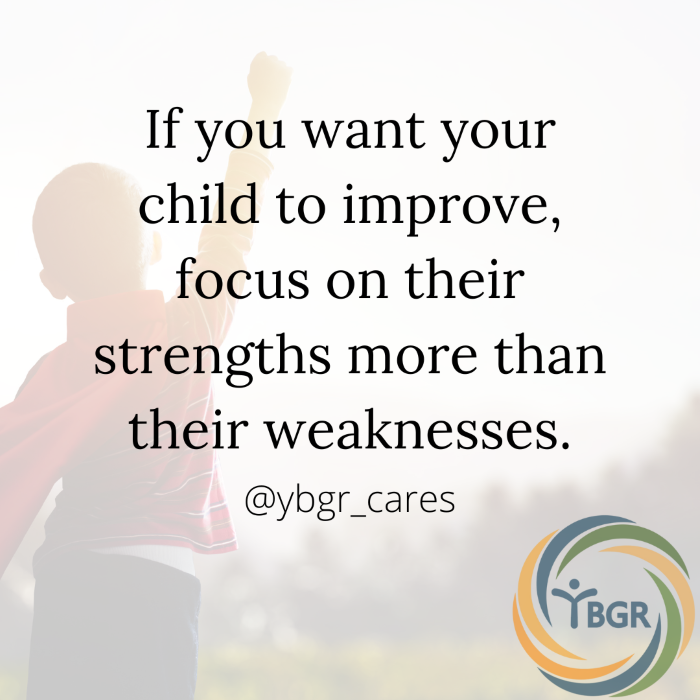
Quote 1: If you want your child to improve, focus on their strengths more than their weaknesses. – @ybgr_cares
Focusing on strengths isn’t about ignoring challenges—it’s about helping kids use what’s already working as a springboard. When a child experiences success in one area, they gain what psychologists call a “mastery experience.” These successes build self-efficacy, the belief that “I can handle this,” which research shows is key to motivation, resilience, and future effort.
Kids who feel capable are more likely to try new things, persevere through setbacks, and tackle areas they struggle with because they have proof their effort matters.
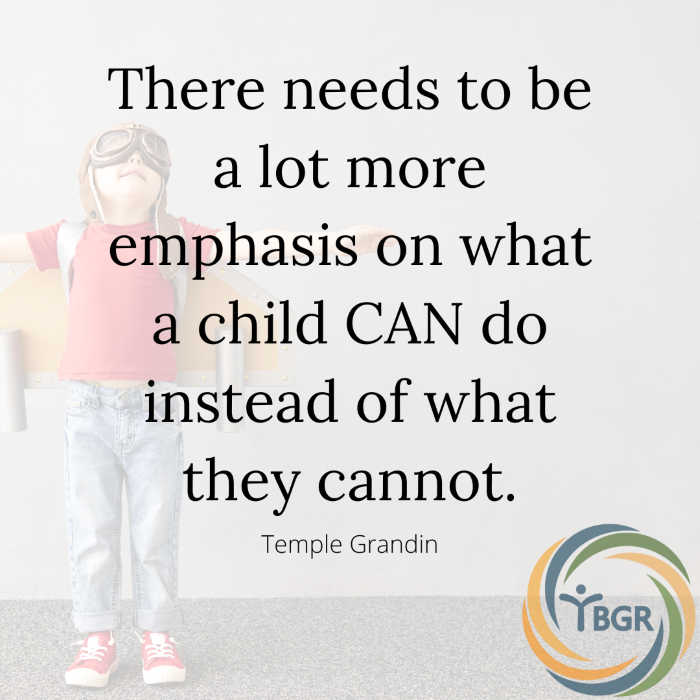
Quote 2: There needs to be a lot more emphasis on what a child CAN do instead of what they cannot. – Temple Grandin
When we point out what kids can do, we help them build a sense of competence that drives learning. Studies on motivation show that children are more willing to take on difficult tasks when they feel capable in at least one area—it fuels persistence, curiosity, and a willingness to take risks.
It’s not about empty praise or inflating self-esteem. It’s about reflecting back real strengths and effort, so kids learn to trust their abilities and stretch beyond their comfort zone.
Research rooted in Self-Determination Theory shows that when kids feel competent, they’re more intrinsically motivated and more likely to persevere through challenges.
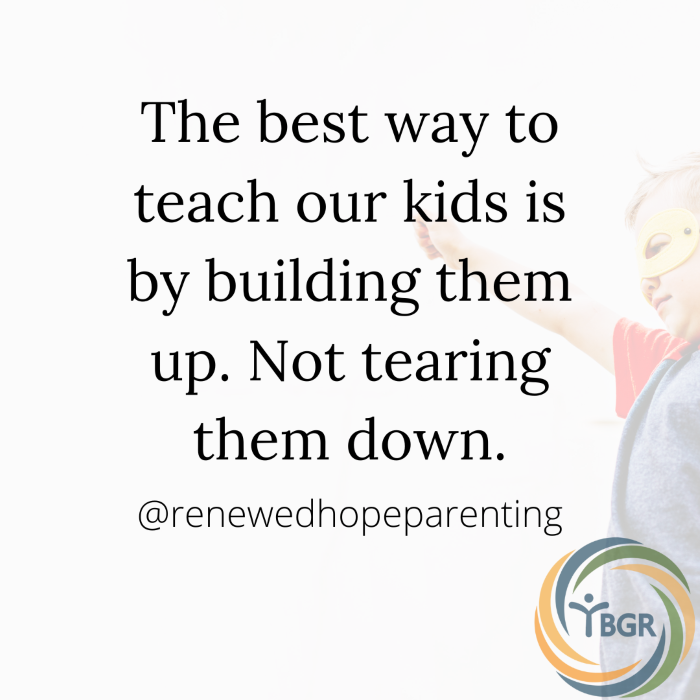
Quote 3: The best way to teach our kids is by building them up. Not tearing them down. – @renewedhopeparenting
Research on positive reinforcement shows that kids learn better when they feel safe and valued. Encouragement reinforces desired behaviors and creates conditions where kids stay open to learning.
Harsh criticism or punishment may stop behavior temporarily, but it often triggers shame or fear—shutting down growth and effort.
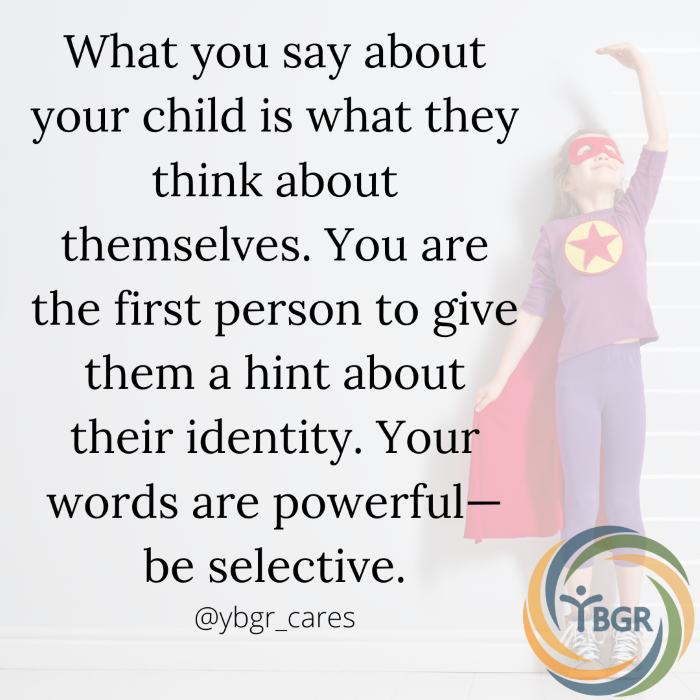
Quote 4: What you say about your child is what they think about themselves. You are the first person to give them a hint about their identity. Your words are powerful—be selective. – @ybgr_cares
Children form their sense of self partly through the repeated feedback they hear from trusted adults. When we highlight strengths, we help them build an inner voice that says, “I am capable,” “I am kind,” or “I can try.” Over time, this shapes identity and self-esteem, influencing how they approach challenges.

Quote 5: Speak to people as if all you see is their potential. Not everyone gets someone like that in their life. Be that someone. – Unknown
The Pygmalion effect demonstrates that children often rise or fall to meet the expectations adults have of them. When we communicate belief in a child’s potential, we help them envision a future they might not dare consider otherwise—and that belief can motivate them to strive toward it.
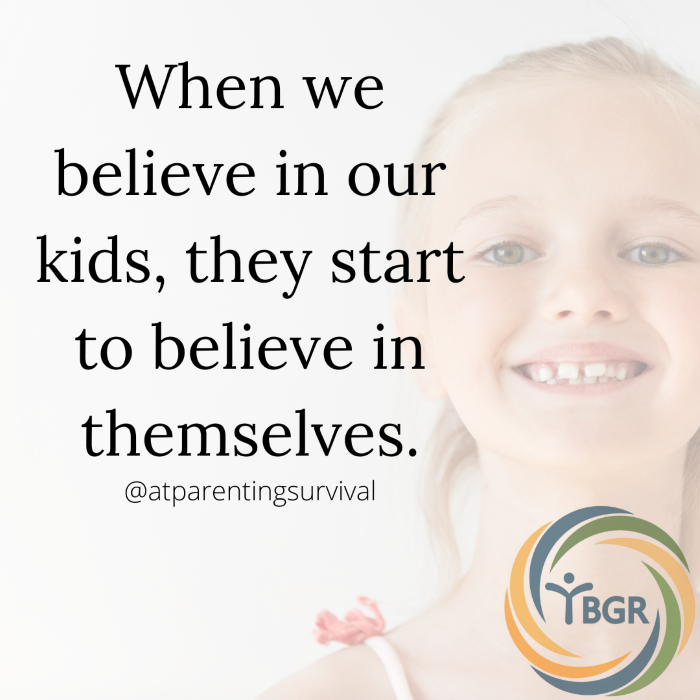
Quote 6: When we believe in our kids, they start to believe in themselves. – @atparentingsurvival
Children build confidence through the belief and encouragement of trusted adults. Our belief acts as a kind of scaffolding—support that helps kids take steps they might not risk alone. Over time, that borrowed confidence helps them build their own self-efficacy.
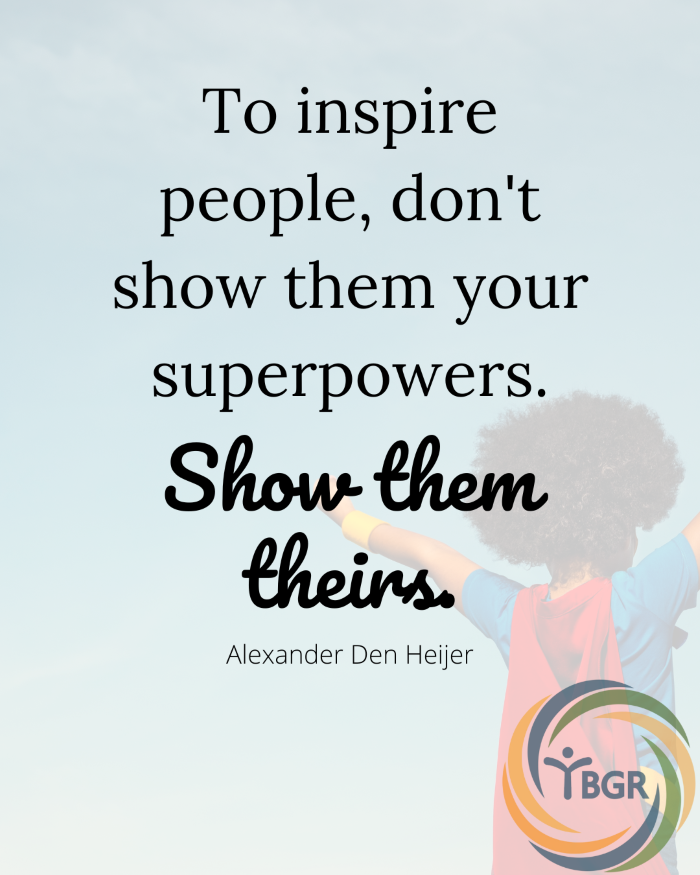
Quote 7: To inspire people, don’t show them your superpowers. Show them theirs. – Alexander Den Heijer
Want to inspire a child? Help them see what they’re capable of. Confidence grows when kids experience their own strengths in motion.
It’s not about praise—it’s about giving them meaningful chances to contribute, succeed, and feel the impact of their effort. That’s what drives lasting motivation and a belief in their ability to handle what comes next.
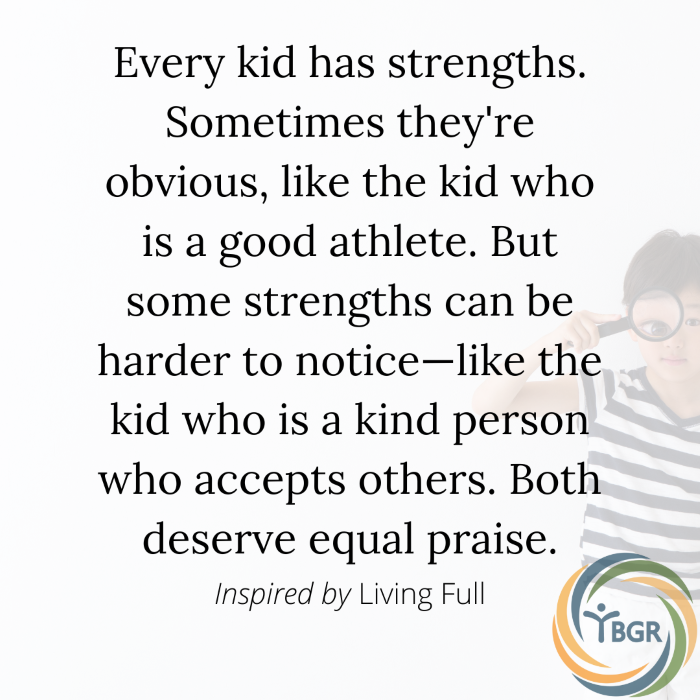
Quote 8: Every kid has strengths. Sometimes they’re obvious, like the kid who is a good athlete. But some strengths can be harder to notice—like the kid who is a kind person who accepts others. Both deserve equal praise. – Inspired by Living Full
Character development studies show that praising traits like kindness, fairness, or perseverance is just as important as praising achievement. Both help kids build self-worth and guide how they contribute to the world.
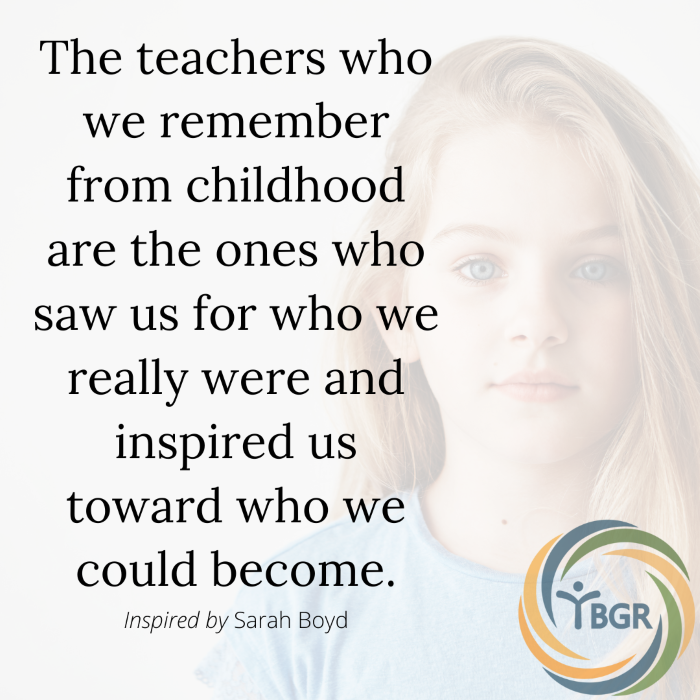
Quote 9: The teachers who we remember from childhood are the ones who saw us for who we really were and inspired us toward who we could become. – Sarah Boyd
Kids internalize the reflections they hear from trusted adults. When we name strengths—kindness, creativity, courage—it helps shape how they see themselves.
Over time, these early reflections form the foundation of identity, confidence, and motivation to develop into their full potential.
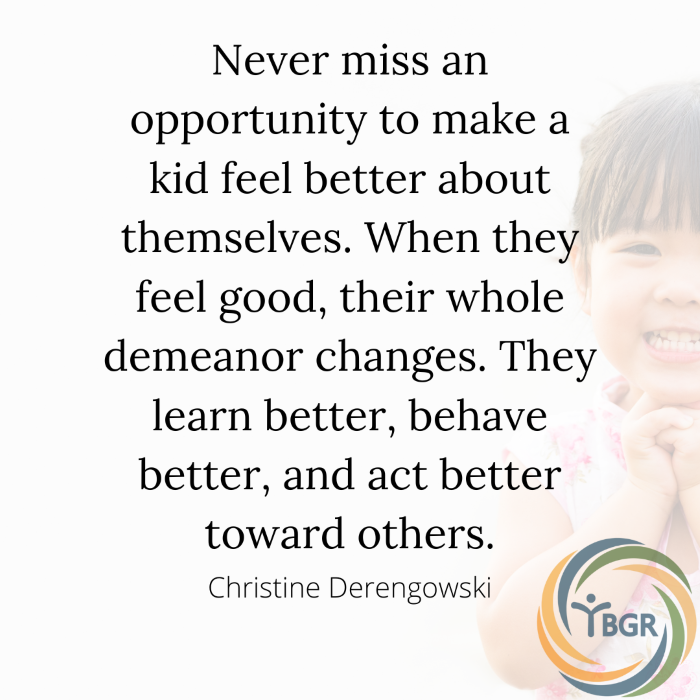
Quote 10: Never miss an opportunity to make a kid feel better about themselves. When they feel good, their whole demeanor changes. They learn better, behave better, and act better toward others. – Christine Derengowski
Self-esteem research shows that when children feel valued, they’re more likely to engage positively with learning, peers, and adults.
Genuine encouragement reduces anxiety and promotes healthy risk-taking—socially and academically. Feeling seen helps kids approach the world with confidence, curiosity, and resilience instead of fear or avoidance.
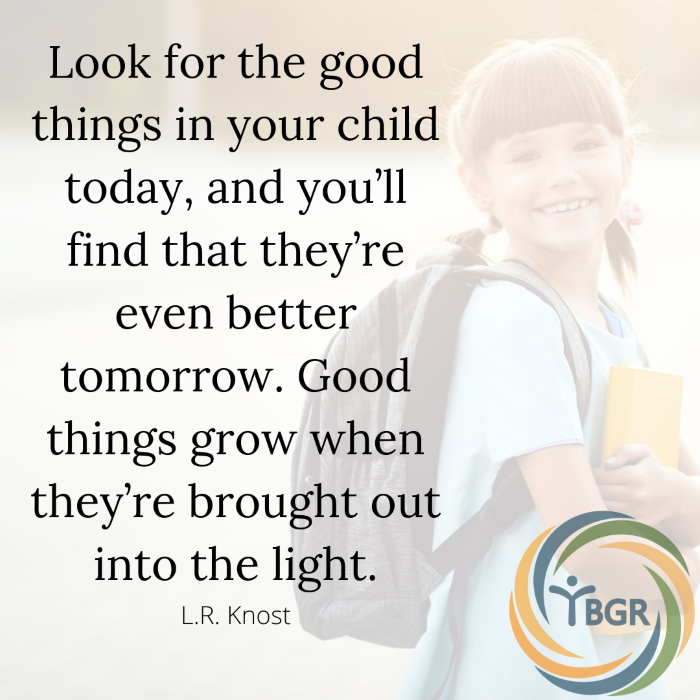
Quote 11: Look for the good things in your child today, and you’ll find that they’re even better tomorrow. Good things grow when they’re brought out into the light. – L.R. Knost
Reinforcement theory shows that the behaviors we notice and praise are more likely to grow. Kids tend to repeat what earns positive attention from the adults they care about — attention shapes behavior.
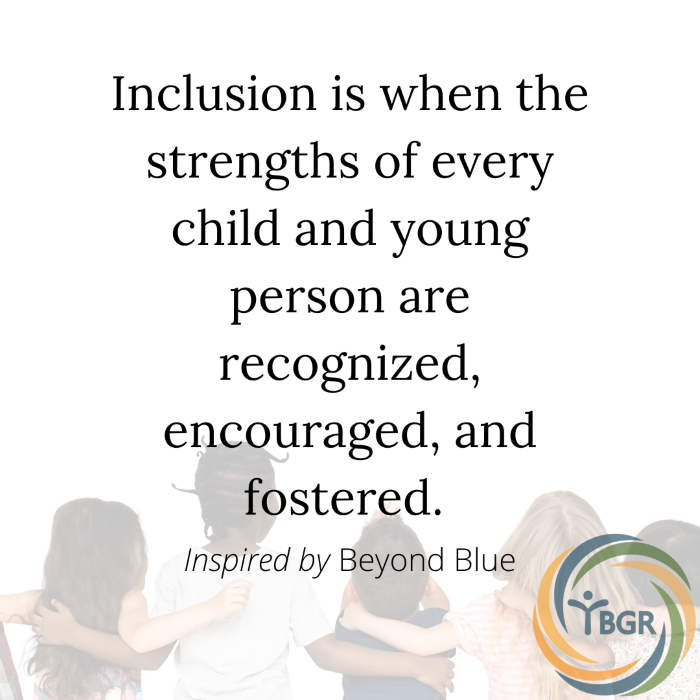
Quote 12: Inclusion is when the strengths of every child and young person are recognized, encouraged, and fostered. – Inspired by Beyond Blue
Research on belonging shows that when kids feel their unique strengths are valued, they’re more motivated to participate, learn, and connect. Inclusion isn’t about treating kids the same—it’s about helping each contribute in ways that build confidence and connection.
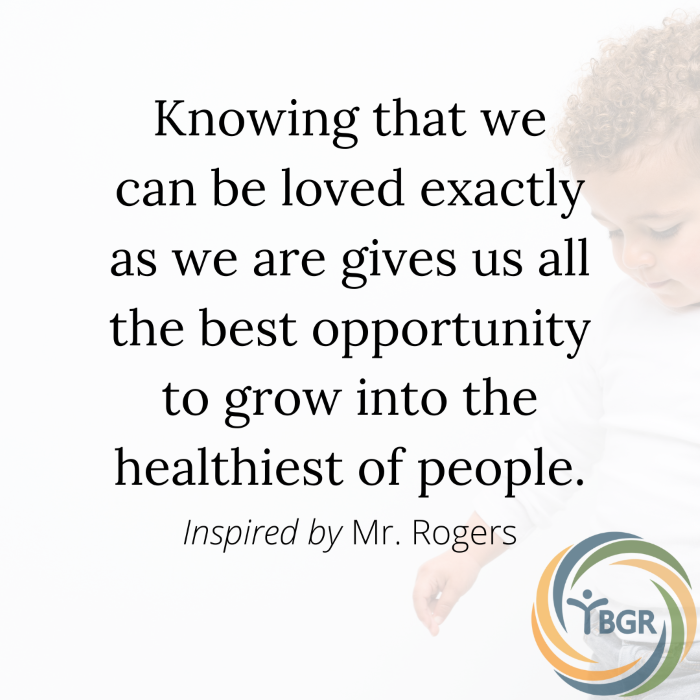
Quote 13: Knowing that we can be loved exactly as we are gives us all the best opportunity to grow into the healthiest of people. – Inspired by Mr. Rogers
Attachment theory suggests that unconditional acceptance fosters the emotional security children need to explore, try, and grow. When kids feel loved as they are, they’re more willing to take healthy risks and bounce back from setbacks.
Want More?
Check out the rest of our blog and follow us on social media. You can find us on LinkedIn at Yellowstone Boys and Girls Ranch, Instagram at @ybgr_cares, and Facebook at Yellowstone Boys and Girls Ranch.
